
Did You Know This?
Picture this: 5,000 years ago, someone in ancient Egypt is tending to a battle wound with frankincense resin. Wild, right? Fast-forward to today, and we’re still reaching for plant power—except now the science is starting to catch up. Who would’ve guessed essential oils for wound healing after surgery would become such a buzz in doctors’ offices and home cabinets alike?
If you’ve just faced surgery (or are caring for someone who has), you’re probably itching (sometimes literally!) to speed up the healing, keep things clean, and maybe even head off those stubborn scars. The truth is, a lot of us want something gentle, natural, and effective. That’s where essential oils come in—like your own mini first-aid army, made from nature.
What Makes Essential Oils Special?
Let’s cut to the chase—why do people actually use essential oils after surgery? Have you ever noticed how some wounds just seem to linger, while others zip through healing in record time? Partly, it’s about your immune system (and following your surgeon’s advice—obviously!), but that’s not the whole story.
Essential oils for wound healing after surgery work their magic in a few ways: fighting off bacteria, calming swelling and redness, boosting your mood (ever sniffed lavender after a stressful hospital stay?), and maybe—just maybe—keeping that scar looking neat and tidy. According to recent clinical studies on lavender oil, some essential oils actually jump-start collagen production—science talk for “your skin rebuilds faster and better.”
How Do They Do That?
It’s partly about the compounds inside the oils. Take beta-caryophyllene, found in oils like lavender and rosemary. Researchers have shown it literally spurs skin cells to grow and migrate—think of tiny construction workers building a “skin bridge” over your wound (Indiana University healing research). That means you heal faster… sometimes with less scarring.
Quick Comparison Table
| Essential Oil | Main Benefit | Fun Fact |
|---|---|---|
| Lavender | Speeds healing, soothes pain | Used on surgical wounds in studies |
| Tea Tree | Fights infection, reduces bacteria | Popular in post-op clinics for “clean” wounds |
| Frankincense | Reduces scars, anti-inflammatory | Star of “ancient remedies” |
| Clary Sage | Speeds tissue repair, gentle on skin | A new science darling |
Which Oils Should You Try?
I know, there are a million to choose from. But let’s not make this complicated. Below are my go-to picks (tried and tested at home, and backed by plenty of research). Think of these as your “plants you want on your team” when you’re on the mend:
Lavender: Calm and Heal
Honestly, if you only grab one oil for post-surgical recovery, make it lavender. It’s the MVP! In more than one clinical study, women who applied lavender oil to incision sites after surgery reported less pain and faster healing (research on lavender oil).
Not to get too geeky, but lavender isn’t just relaxing… it revs up your body’s remodeling of tissue and formation of new, healthy cells. That’s supported by lots of evidence from animal and human studies (lavender oil wound review).
Personal Story:
After my own small surgery last year—one of those sneaky moles—I felt a bit desperate to dodge infection, redness, and a gnarly scar. Following some nurse advice, I mixed a few drops of lavender into a Best carrier oil for wound healing (mine was jojoba). Dabbed it on (carefully, not directly on the open area) every night. I truly think it helped—my skin looked even-toned way sooner than expected, and there wasn’t any harsh smell or sting.
Tea Tree: Nature’s Germ Buster
Tea tree oil is like the hand sanitizer of the plant world—no joke! It has strong antiseptic properties, making it a staple both in homes and wound care clinics. There’s a reason many recommend adding a couple of drops to sterile water and dabbing gently on healing skin (once that scab has closed and the wound is sealed!).
If you’re the cautious type (hi, fellow worrier!), don’t skip a skin test—undiluted tea tree can sting and irritate. Always blend it into your Best carrier oil for wound healing for a more gentle, even application.
Mini anecdote:
A close friend of mine, recovering after a minor knee scope, tried tea tree diluted in sweet almond oil for a week. She swears it kept her incision clear—no redness, no funky “hospital smell.” Yeah, it’s anecdotal, but sometimes, you can just “feel” that something keeps things on track.
Frankincense & Helichrysum: Scar Softeners
Frankincense isn’t just something you read about in old stories… modern skin therapists love it for its anti-inflammatory powers and soothing properties. It teams up perfectly with helichrysum—another gentle essential oil that’s superstar at scar prevention and fading.
The science is still young, but these two have been shown to support cell turnover and reduce lingering redness. So if “best scar oil after surgery” has you scrolling through dozens of products, a few drops of these in a Best carrier oil for wound healing could give you an easy, elegant blend. Not bad for a couple of ancient plants!
How Do You Use Them Safely?
Here’s where things get real. Essential oils are powerful—think “spice rack, but for your skin.” You don’t want to dump chili flakes onto a wound… same rule applies. Never, ever use them undiluted or on a raw, open wound, unless a qualified medical professional tells you it’s okay.
Basic How-To:
- Wait until the surgical site has scabbed over and is no longer open.
- Mix 1–2 drops of your chosen oil into 1 teaspoon of carrier oil—argan, jojoba, sweet almond, or even avocado are all solid picks. (If you’re undecided, here’s a dive into the Best carrier oil for wound healing choices.)
- Patch test: Dab a tiny amount on your inner forearm. Wait a day. No rash? You’re probably good to go.
- Apply gently to healing skin (don’t rub too hard!). Do this a couple of times each day for the best shot at smooth results.
Common Pitfalls
I’ll admit, I once got cocky and used tea tree neat on a scratch. Mistake! That spot ended up redder than before—lesson learned. Be patient. And as tempting as it might be to try “just a little more,” remember: less is more. Your nose, your skin, and your doc will thank you.
Sample Blend: My “Surgery Scar Saver”
- 1 tablespoon calendula-infused carrier oil
- 2 drops lavender
- 1 drop frankincense
- 1 drop helichrysum
Mix and massage gently once or twice a day… and enjoy that spa smell. If you’re curious about custom mixes, you may also want to check options for the Best scar oil after surgery—sometimes ready-made blends can be super convenient.
Not All Oils Are Skin-Friendly
Time for some “tough love”—not every essential oil is a superstar for post-surgery skin. Citrus oils can make your skin sun-sensitive (not what you want with a healing wound), and spicy oils like clove or wintergreen can spark irritation. Stick with classic wound-healers: lavender, tea tree, frankincense. If you’re at all unsure (and especially if you have a condition like diabetes), always run it by your provider.
Oh, and… if that redness suddenly spreads, you spike a fever, or your wound oozes, no amount of oil can replace your doctor. Seriously—nature and science should go together here.
What About Scars?
Let’s be honest: scars happen. Even with the best care, your skin’s got a memory. Essential oils for wound healing after surgery aren’t miracle erasers (I wish!), but research on oils like frankincense and helichrysum suggests they can fade the look of existing scars and help smooth new skin (plant-based scar science).
If you’re feeling self-conscious (been there…), combining essential oils in a blend like the Best scar oil after surgery may be worth a try. Even if it doesn’t erase every mark, it gives you a self-care ritual—and that can help you “own” your story, scars and all.
Tiny Rituals, Real-Life Results
Have you ever noticed those little everyday rituals that make you feel human after illness or surgery? Maybe it’s your favorite hoodie, or that cup of herbal tea before bed… or a calming scent while you change your dressing. That’s what essential oils add to recovery: a gentle, hopeful nudge that you (and your body) are in this together. And there’s just something quietly satisfying about taking your healing into your own hands (literally… a couple of drops at a time).
Let’s Heal This, Together
First off, if you’ve been through surgery—big, small, planned, or a total surprise—give yourself some credit. Healing isn’t just physical; it’s emotional, too. Sometimes, it’s about the small, intentional things: the smell of lavender as you wind down, the touch of frankincense when you massage that scar, knowing you’re doing something to help your body along.
Essential oils for wound healing after surgery aren’t a cure-all, but they’re a gentle piece of the puzzle—supported by both tradition and growing research. Use them smart: dilute, stick with tried-and-true blends (like those for the Best scar oil after surgery), patch test, and always keep your docs in the loop.
Ready to give your skin a little “plant power” love on the road to recovery? Try it for yourself—or, better yet, share your experiences below. Healing’s never a straight line, but it is a journey. And you, my friend, are not walking it alone.




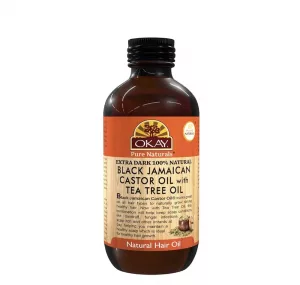



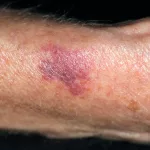


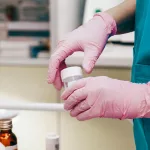


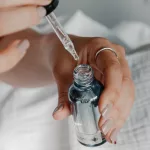
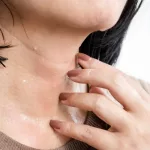
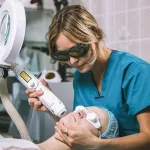



Leave a Reply
You must be logged in to post a comment.